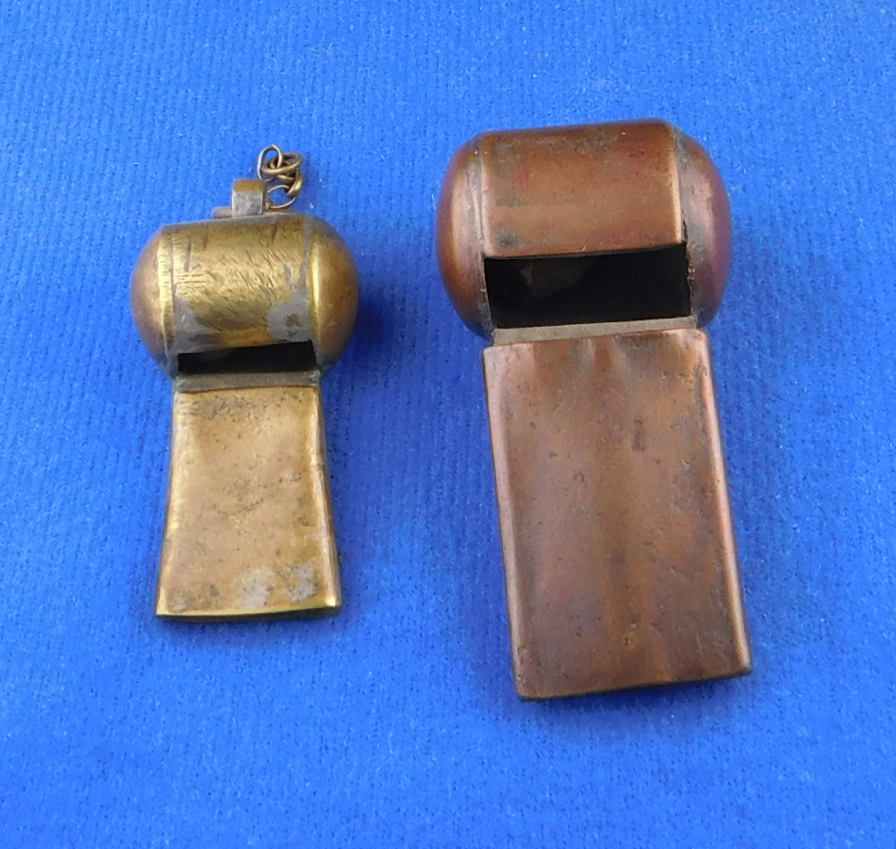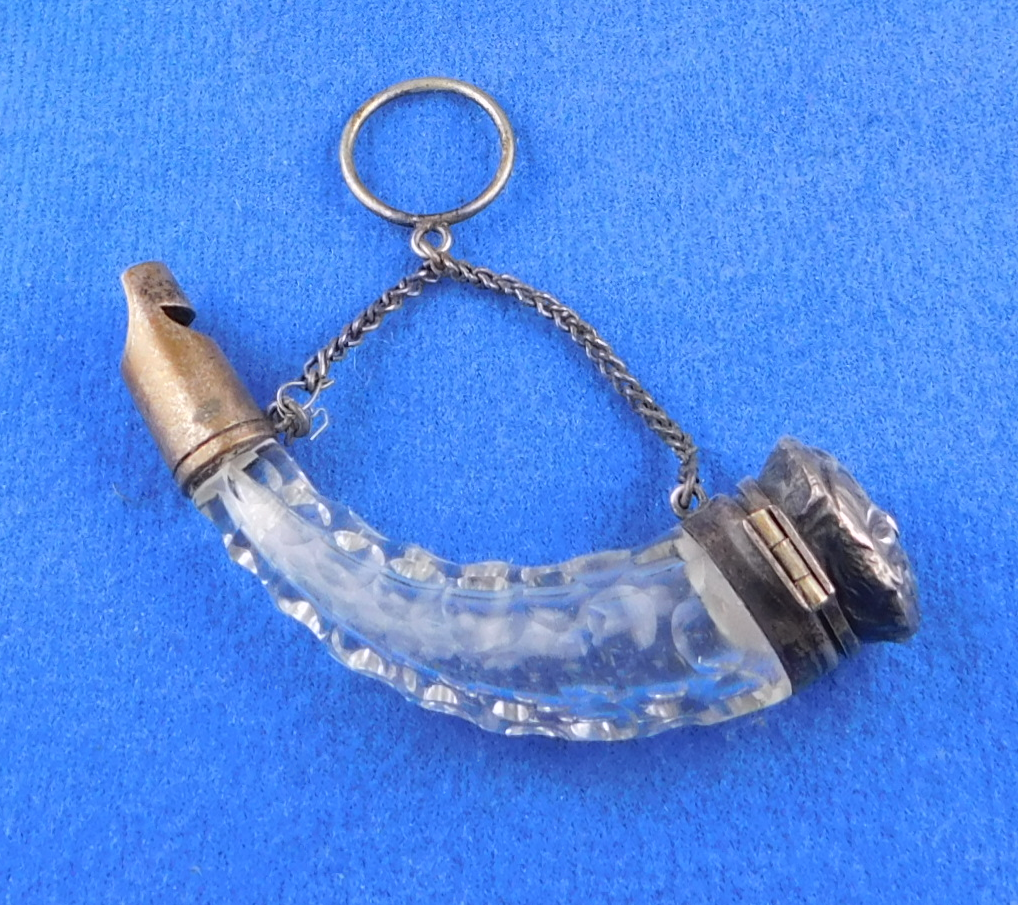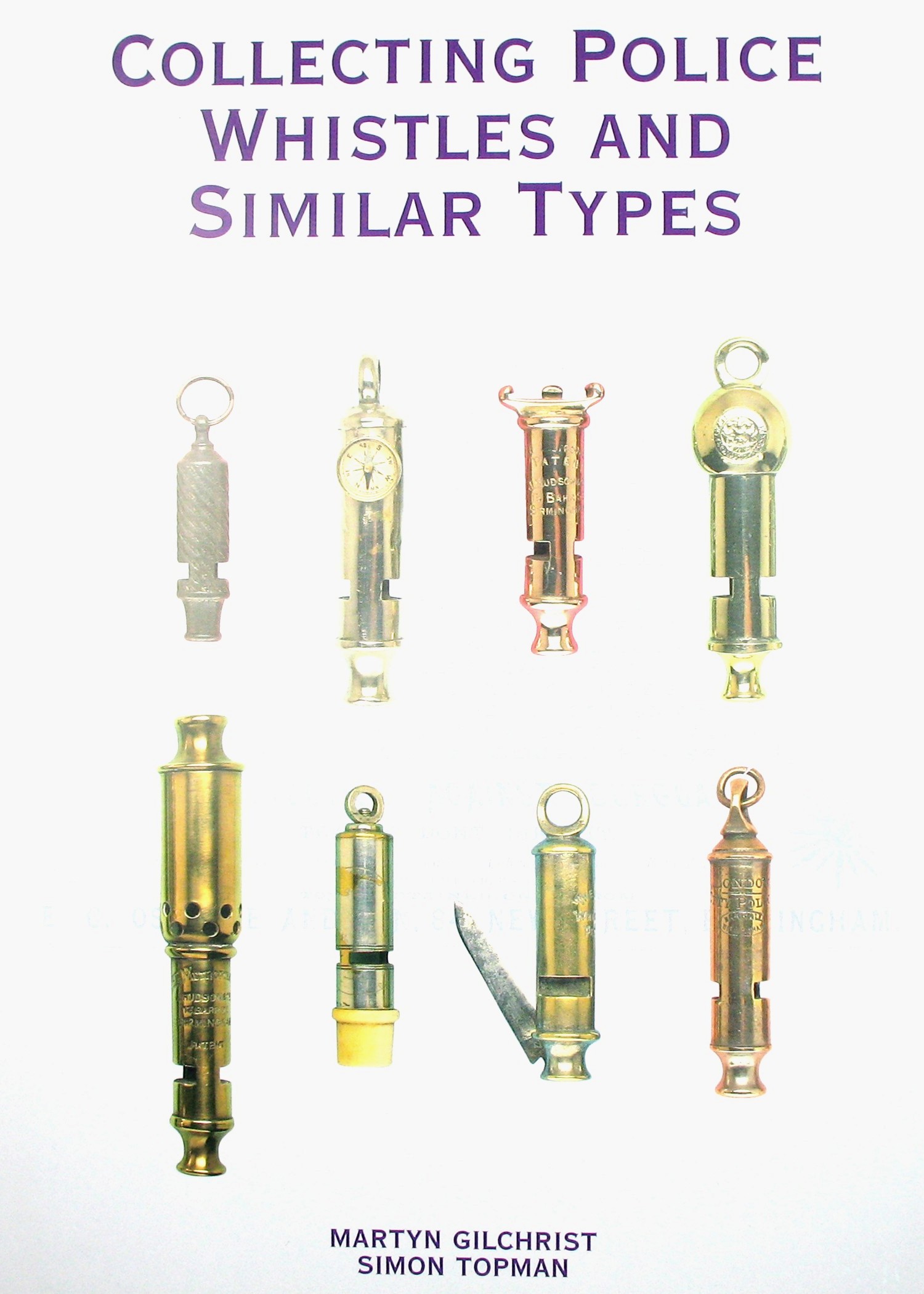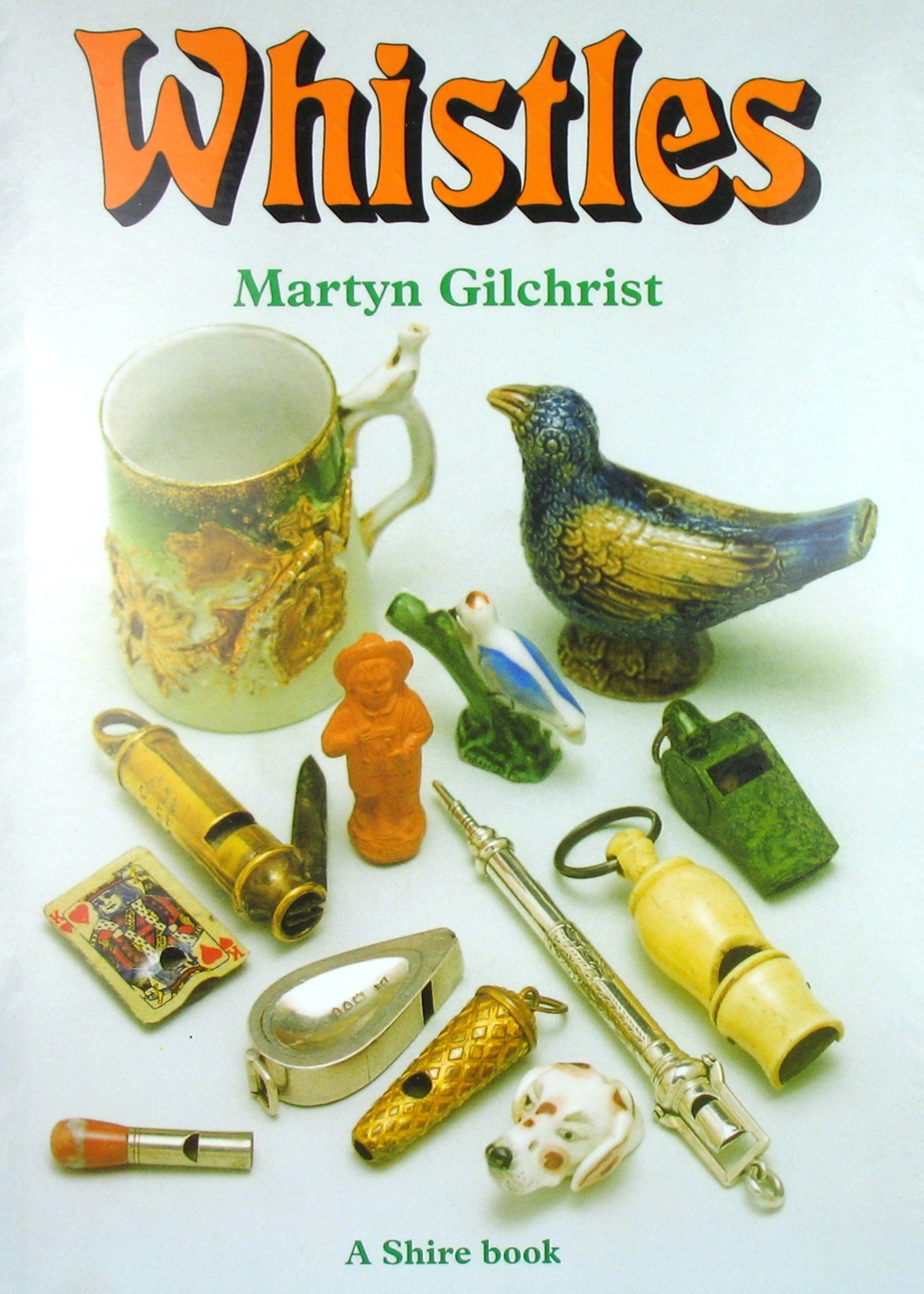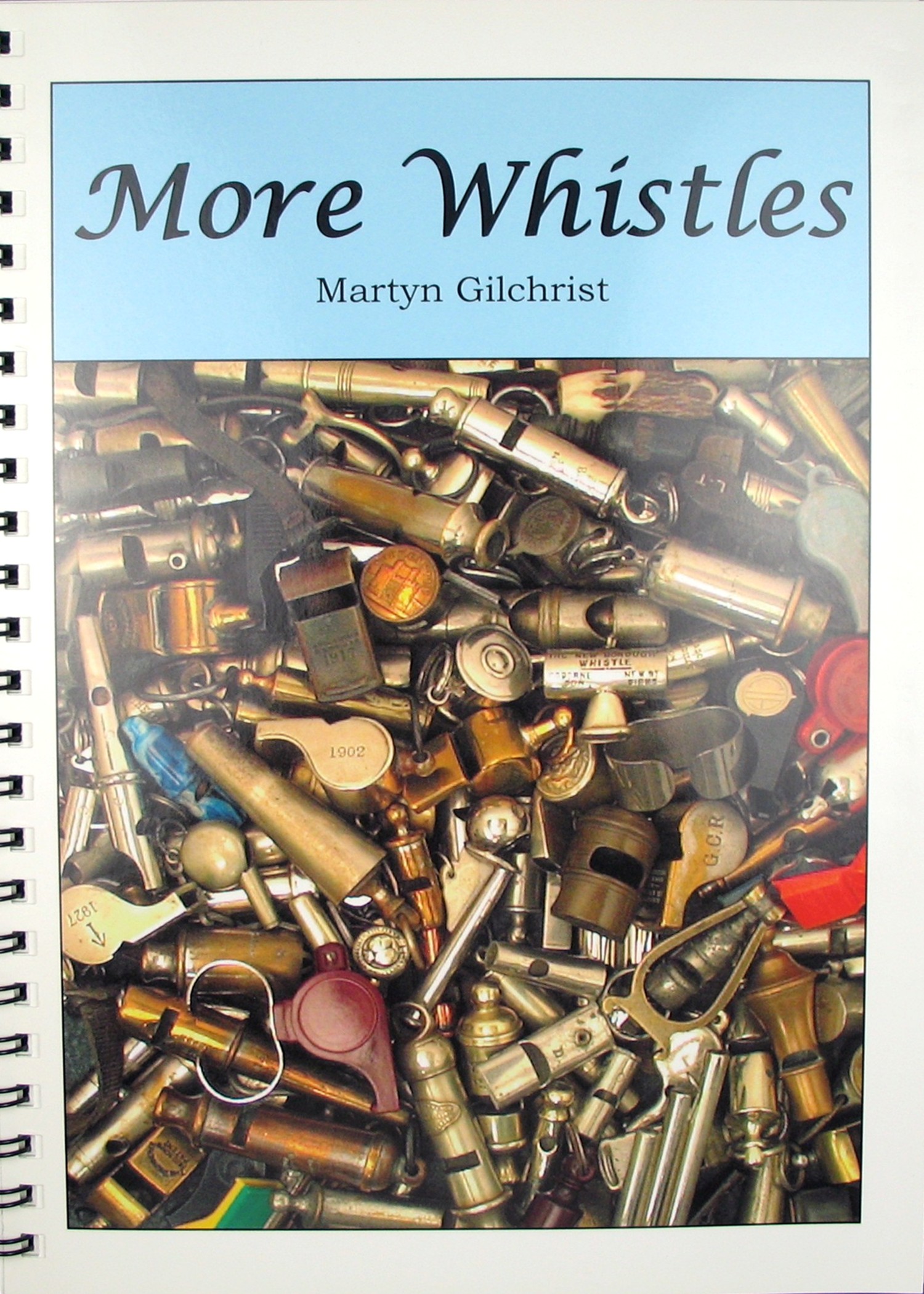Spotlight > Whistle Maker by Country > United Kingdom > Coney > 008 Coney Barrall Type Top Round, Special Edition
Whistory
Presenting a formerly unknown whistle is altogether difficult. Perhaps it is known by one or more people. Yet if it is not described, few can benefit. This is what appears to be a new description.
What kind of Barrall top is described?
Here then is the description of a large round whistle of very unusual features. The top appears close to the tops Coney and Company used on their whistles but is not restrictive to them. — See SPOTLIGHT # 106 Coney types of tops.
Closer examination places as possibly a John Barrall raised ring top.
The dimensions and why significant of this Barrall type top.
The overall length is very large, and measures 95mm so comparatively speaking, this is a very large whistle which currently is mono-typical.
It emerges from the UK. Dating is difficult without tying it to a maker. The features are also not typical.
This whistle is not presently attributed to any certain maker.
Whistle Classification
| Category | round |
| Order | Barrall Coney |
| TYpe | unknown |
| Class | silver plated brass |
| Subclass | ornate window high top ring |
Whistle Archeology
The classification of this type of whistle is difficult because of the overlap of styles and lack of stamp or extra distinguishing characteristics not yet catalogued.
No patents, catalogues or advertisements exist.
Little can be unearthed about this whistle, with no parallels, no stamping and the unusual design of it. Although a masterpiece of craftmanship, it stands alone at this point.
Features include:
- Size
- Material
- Top Loop
- Window Design
Whistology
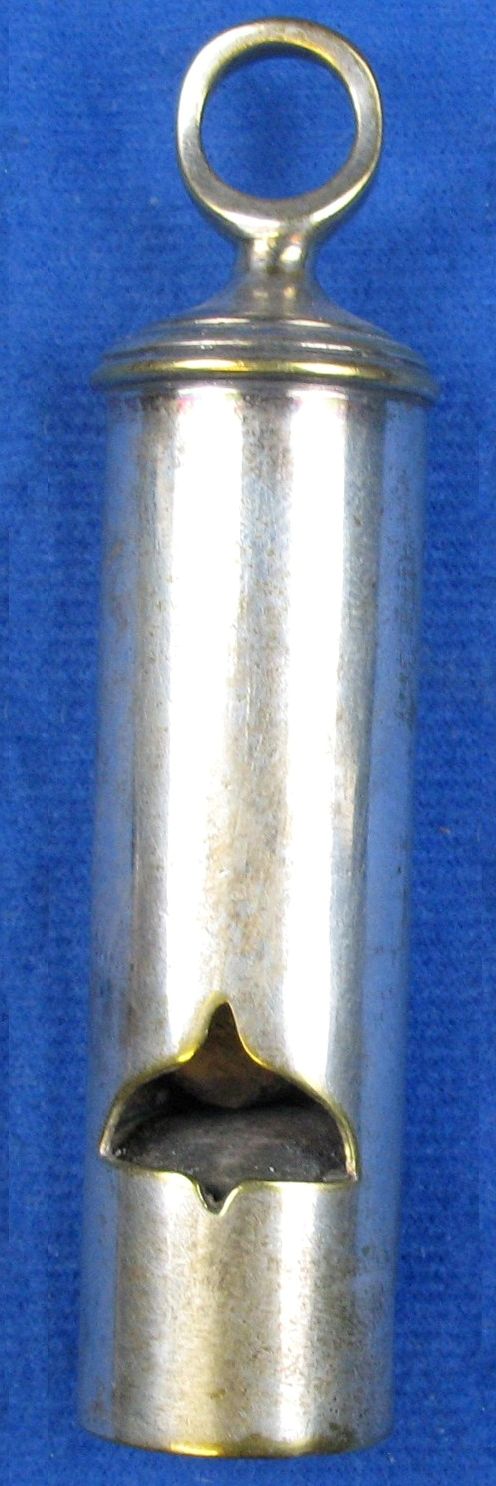

What catches one’s eye immediately is the top cap. The high standing loop is reminiscent of Coney made whistles. However, the edge of the top plate is more elaborate than customarily seen. John Barrall used this top loop also. His use is closer to a match, than Coney.
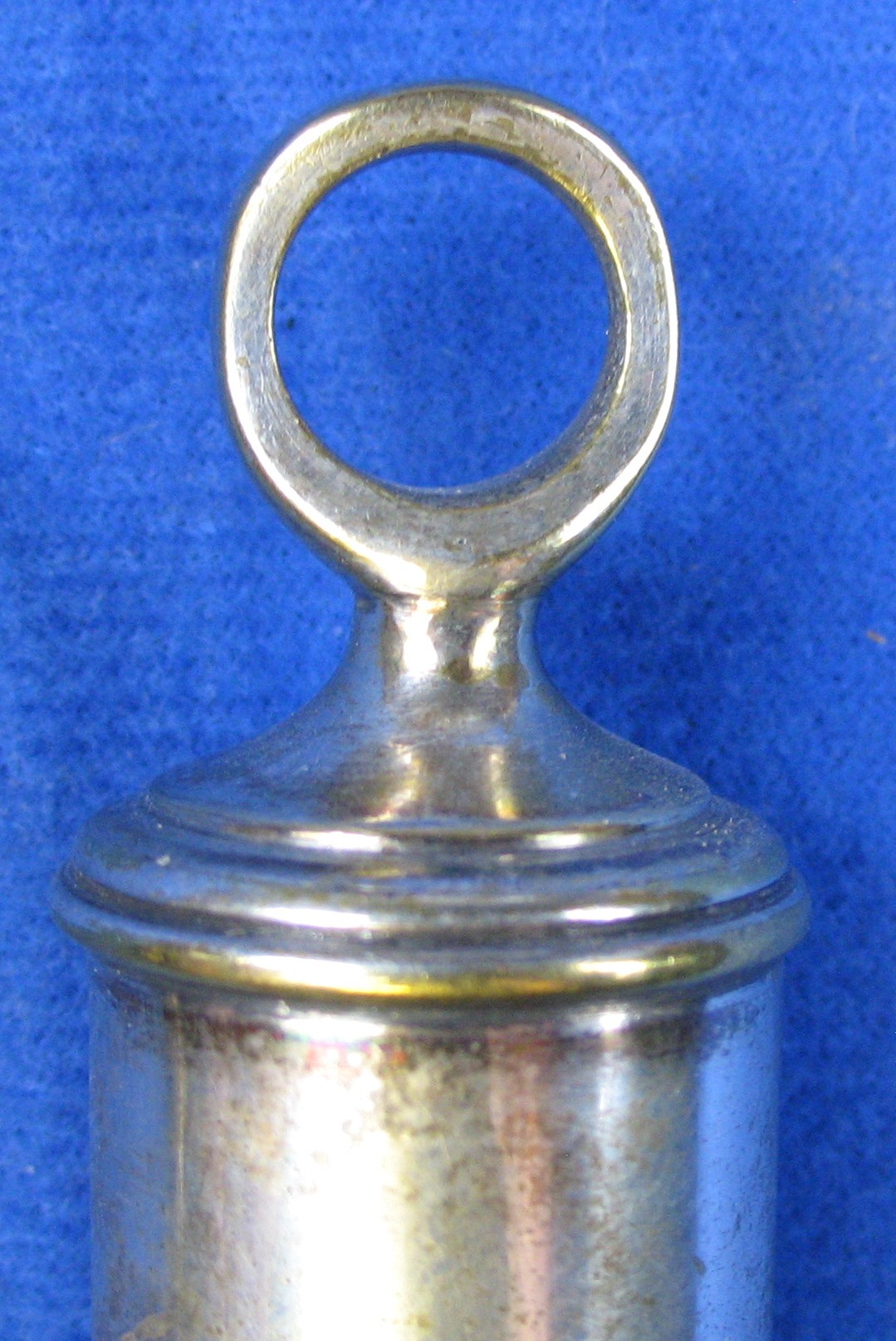
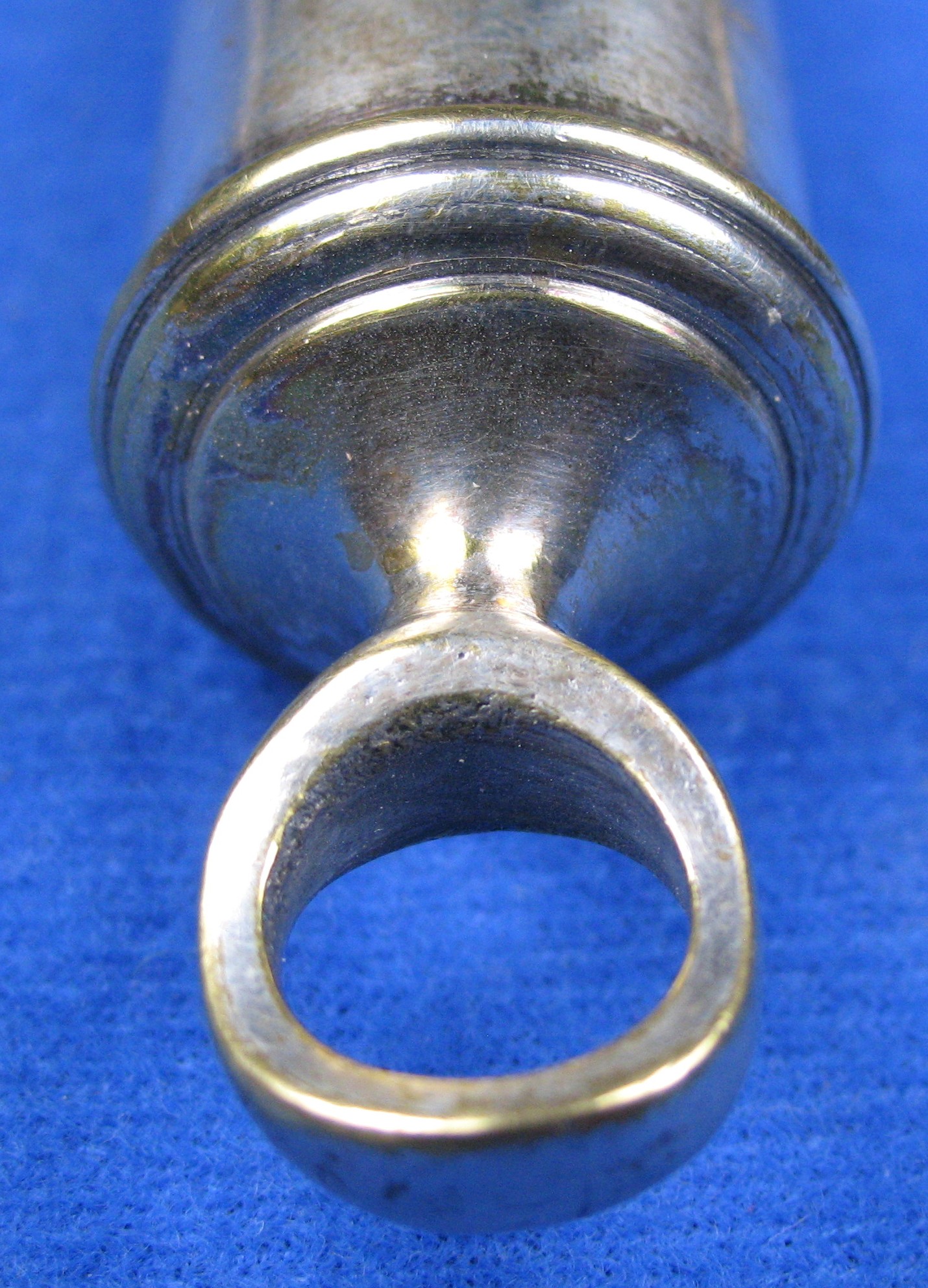
In fact, the top ring sets even higher than a Coney as seen in the comparison picture following.
The left is the center stage round, the right is a stamped Barrall whistle.
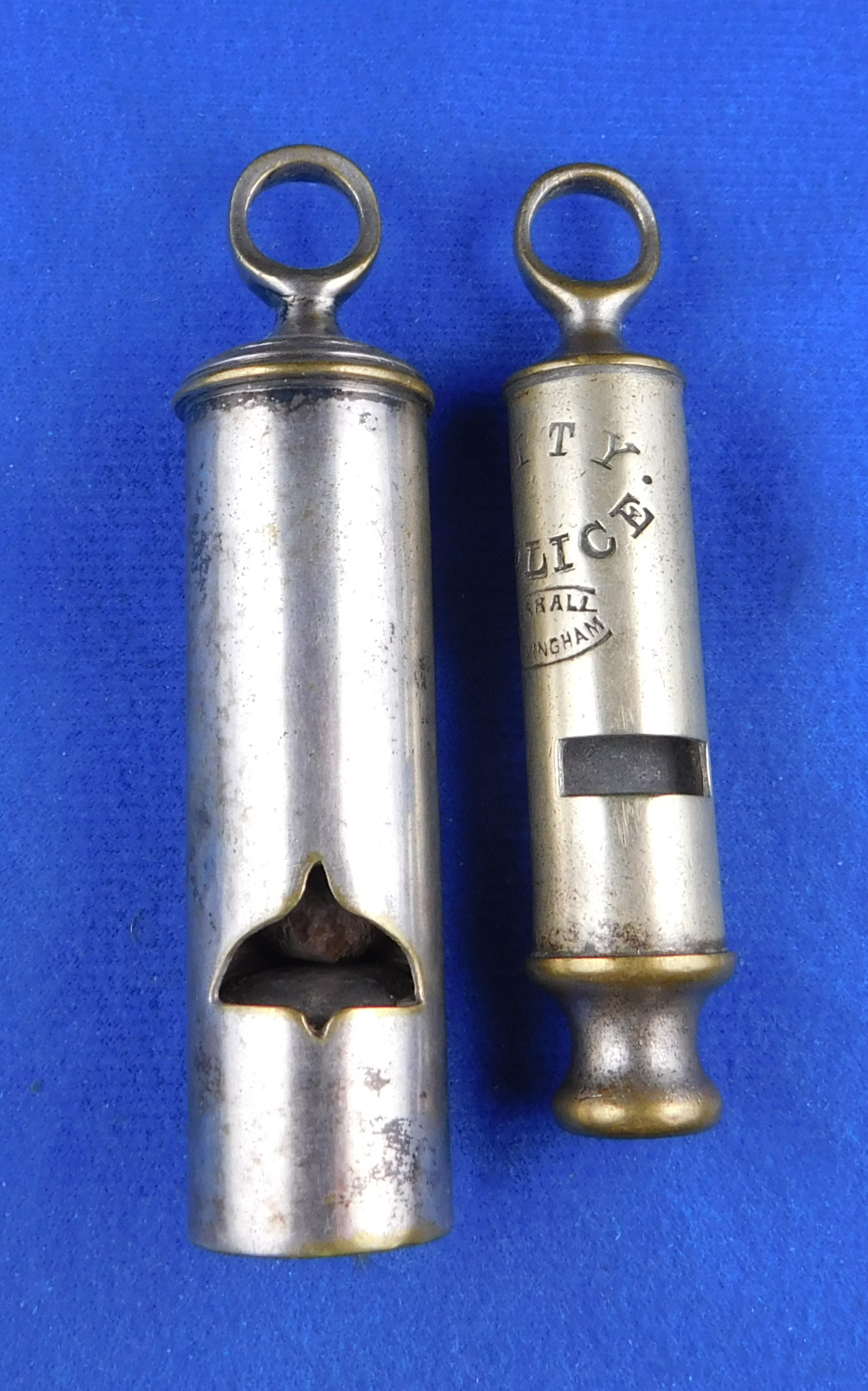
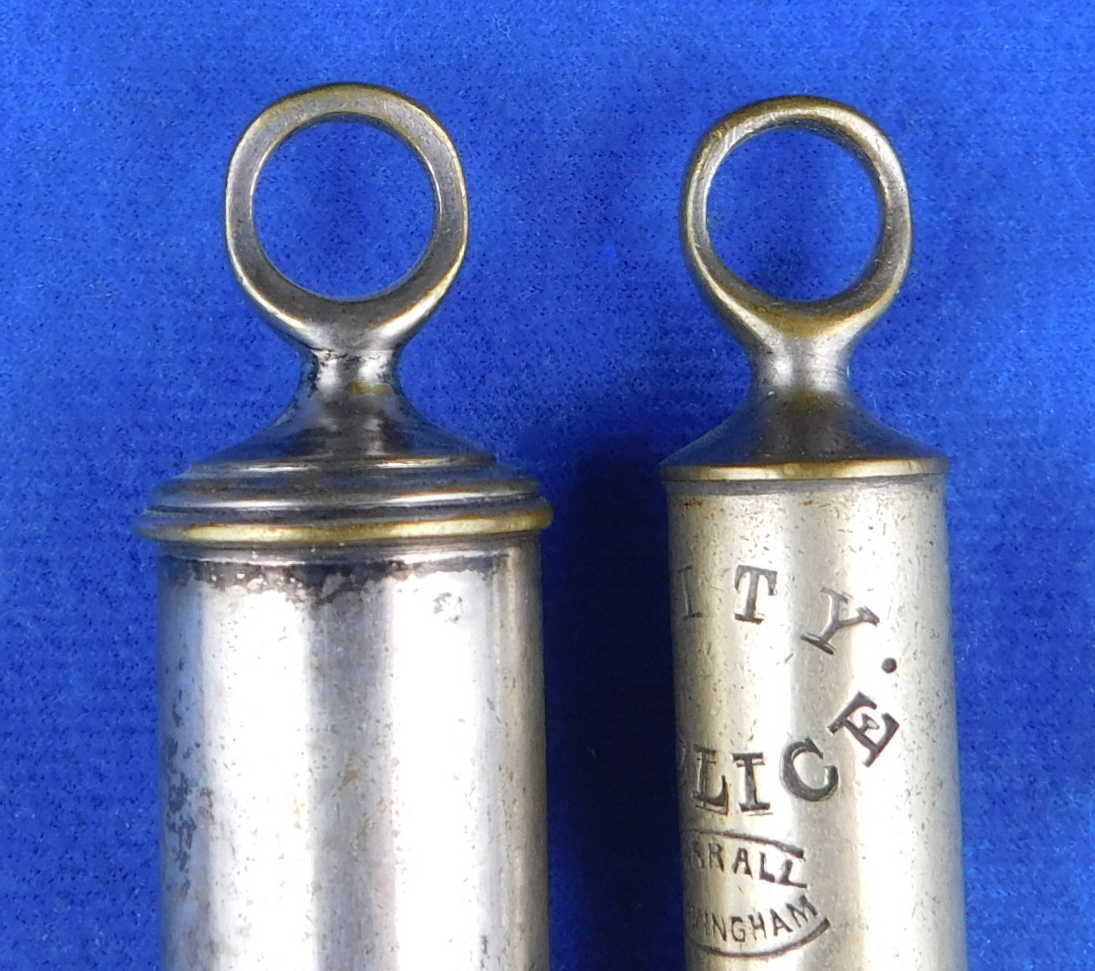
Below see that the mouthpiece is quite arched like DeCourcy does and zooming in on the fipple one sees that it is well machined as it attaches to the side walls.
The fipple itself on the inside is very slanted helping create a higher pitch, but remarkably it sounds just the opposite.
This would be because of the large body, so that it is very low and hollow sounding, not unlike a Kings whistle.

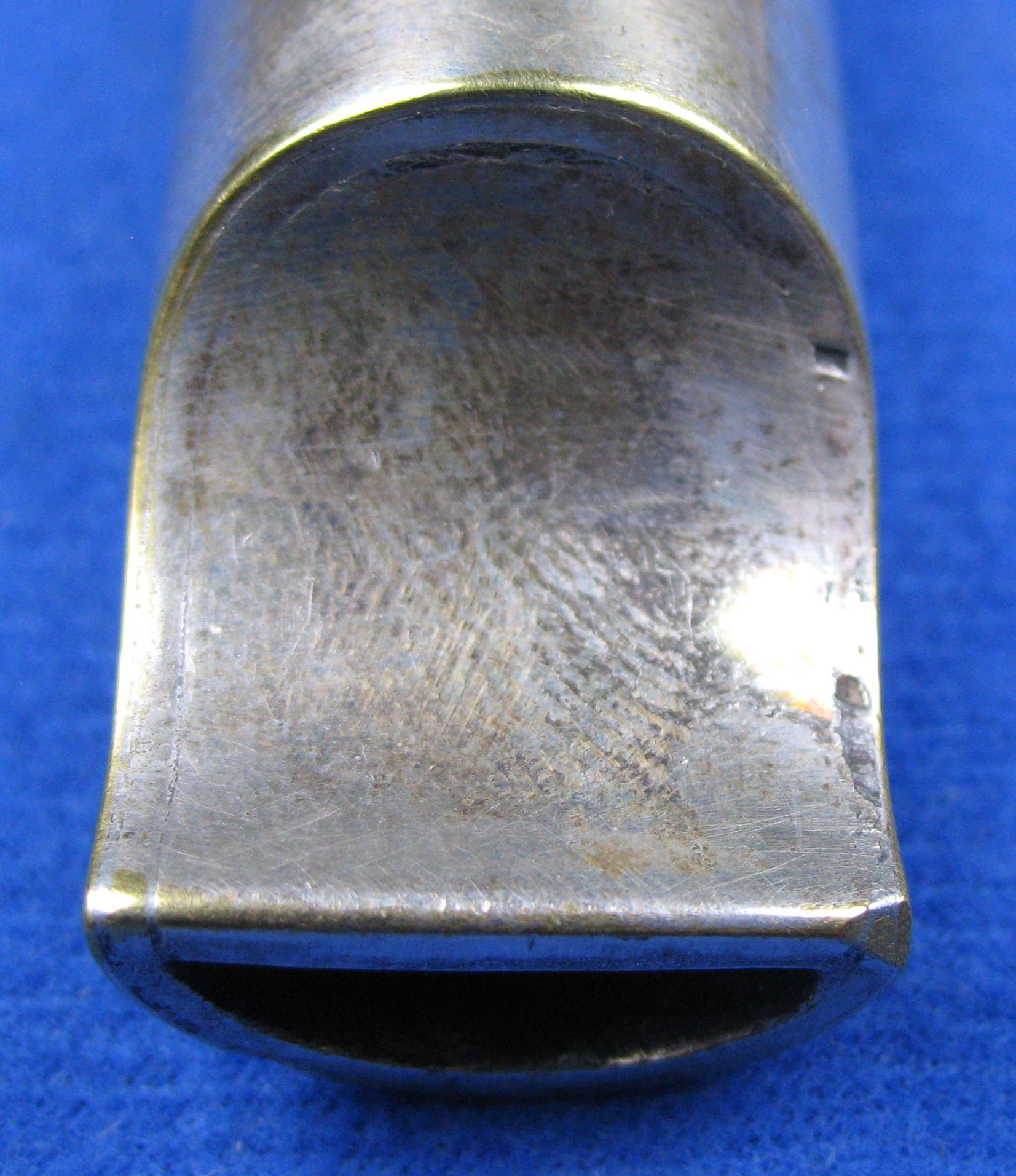
Finally, we give special attention to a spectacular window opening.
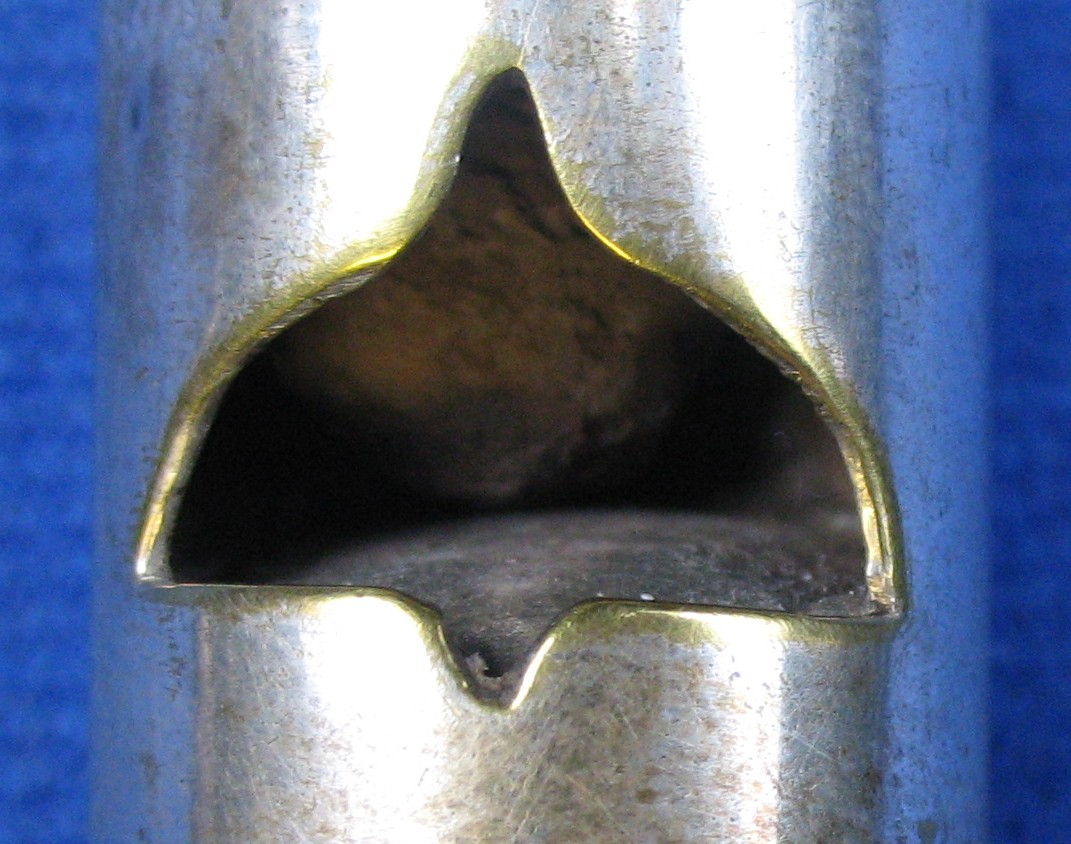
It is unusual, very ornate, distinct and aesthetically sweeping upwards and downwards to points. The whistle is complete with a large cork ball for that staccato sound when blown.
Taking a closer look, one sees that it was silver plated over a brass body which again is uncommon.
Dating this whistle is difficult. The body itself seems to be from a thick solid stock of brass, with a cast top and then cast fipple.
We can estimate it to be conservatively circa 1890.
Comparing to a Tudor Rose Hudson Round
Lastly let’s make a comparison for size to a Tudor Rose Hudson …
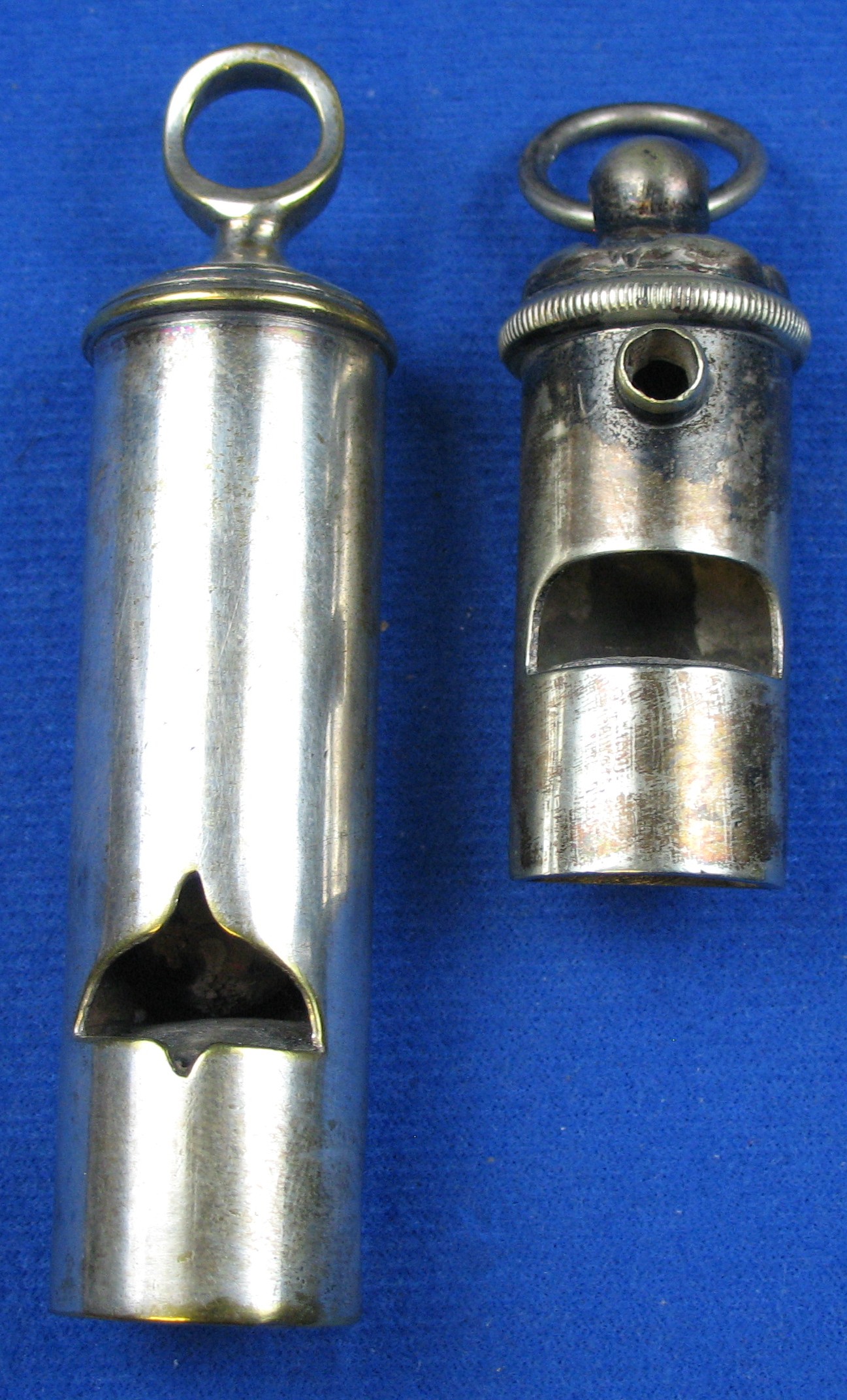
It dwarfs the Tudor being nearly double in size. This came from the Phayne collection in the UK which we would like to acknowledge, as a truly remarkable contribution to the whistle world.
Conclusions
Unique whistles come to the fore continually to watch for. In this case a very high-quality unknown design. Perhaps made by Barrall.
TWG
Posted March 2, 2013
Revised October 10, 2020
Revised February 12, 2021
Revised December 27, 2021
Revised December 30, 2021
Revised January 30, 2022
Bibliography:
Reference collection, The Whistle Gallery
